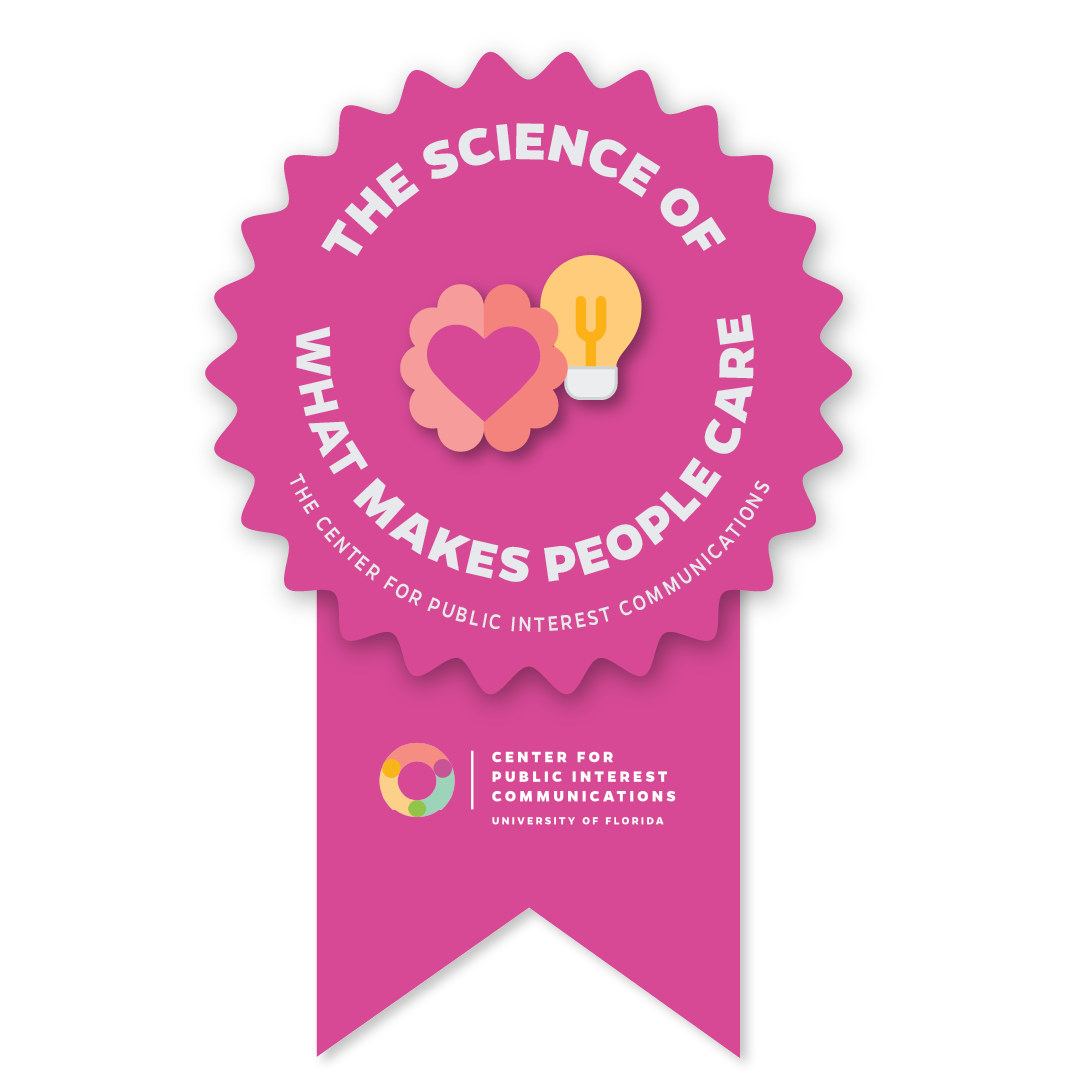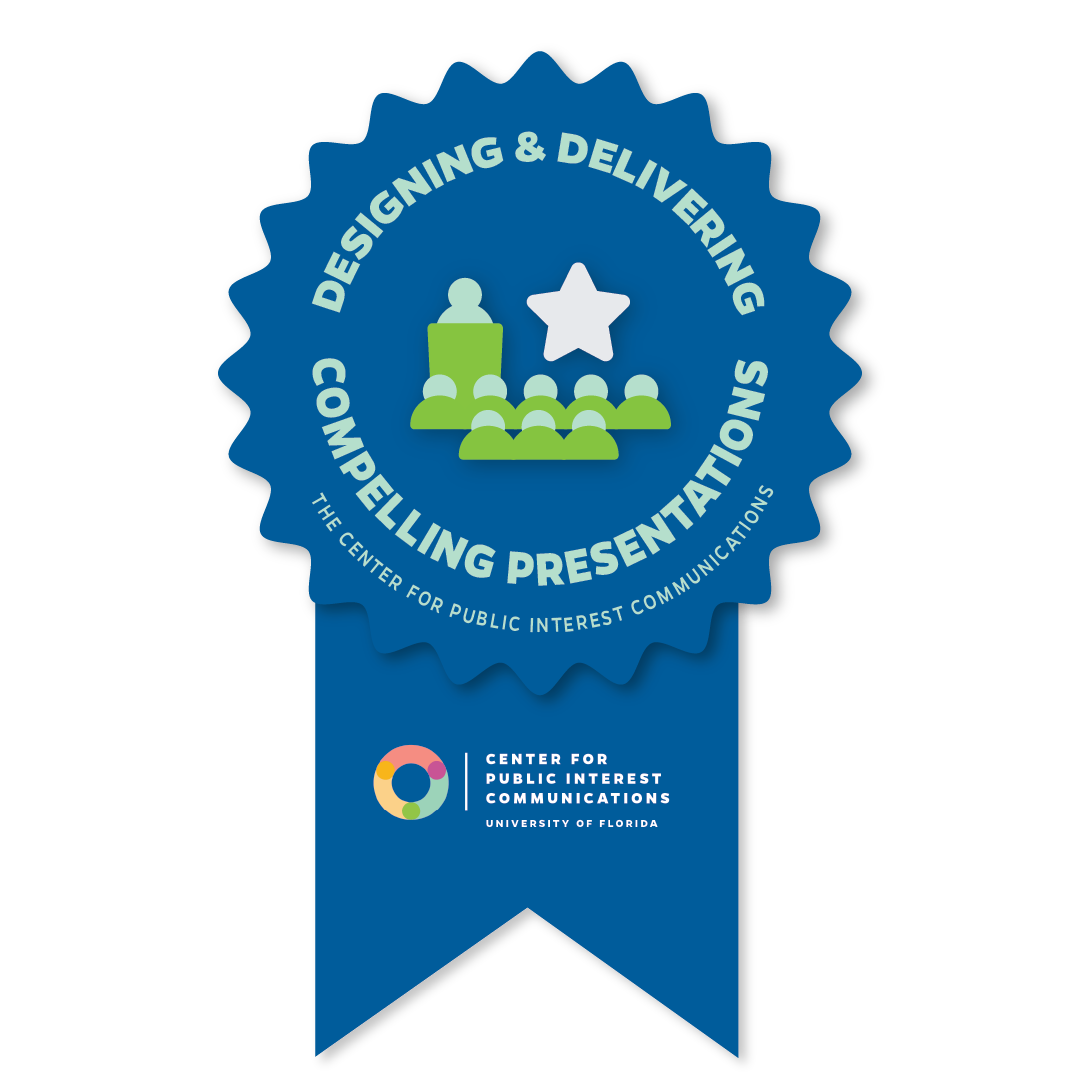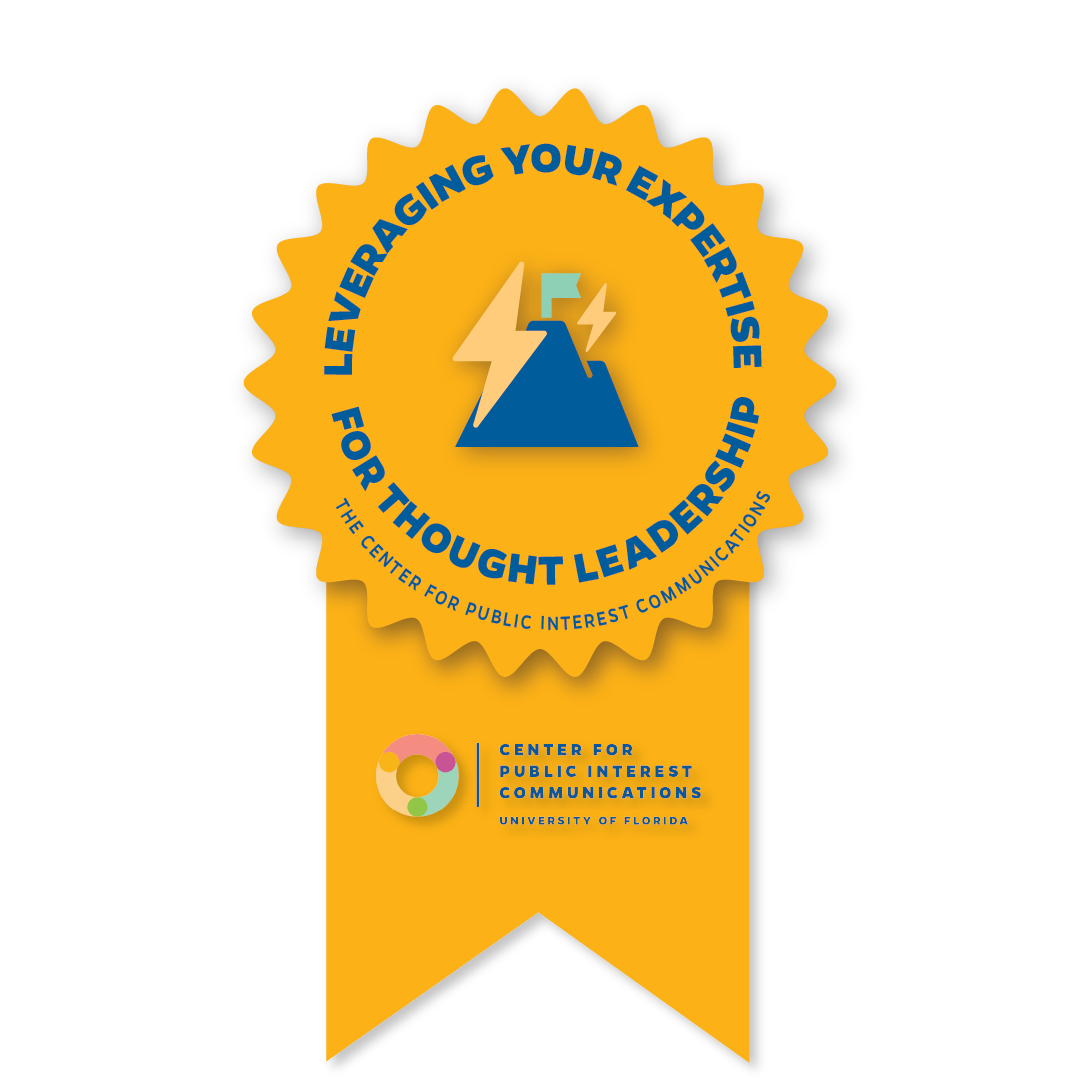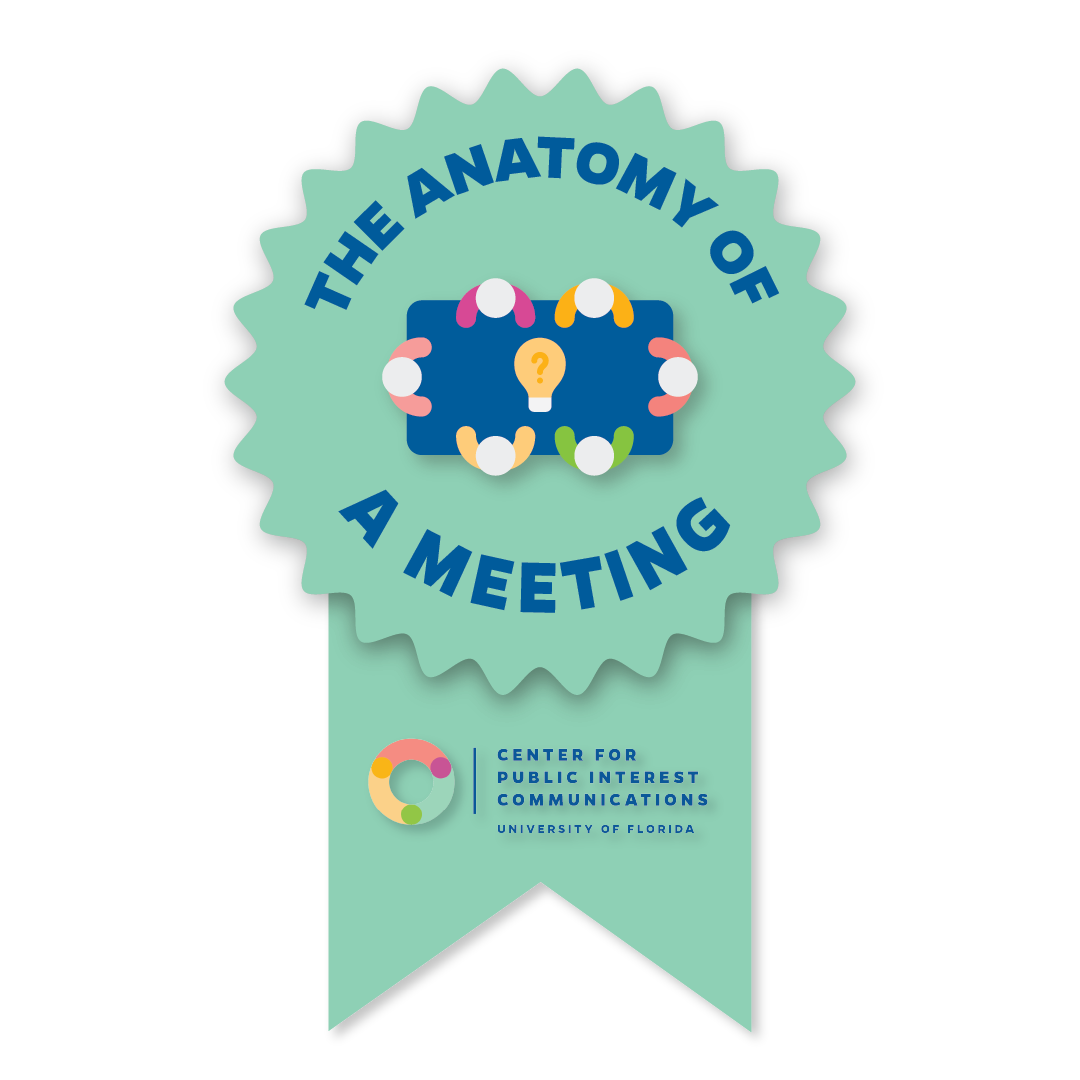777877 - Public Interest Communications Self-Paced Courses
Learn on Your Schedule
Course Description
Enroll in our self-paced workshops to learn on your own schedule. Discover how to hone your communication strategy with a public interest mindset. Learn to lead on change management strategies, build an effective theory of change and develop your thought leadership.
Choose from any one of our self-paced pubic interest communications courses. Earn a digital badge for each workshop. Bundle multiple courses to receive a discount and earn a course completion credential.
Our workshops are rooted in what science tells us about how people learn, think, form opinions and what gets them to take action. Lively and hands-on, training sessions are led by expert coaches who draw on recent findings and insights from psychology, sociology, neuroscience, public relations, political science and other scholarship.
Course Outline
 |
The Science of What Makes People Care |
The scientific evidence is piling up: people don’t act on information; they act on what they care most about. We’ve distilled six core principles from behavioral, cognitive and social science that you can apply to help people care more about your work. Implementing these techniques can reduce misinformation and increase understanding and resonance. In this session, you will learn to apply these rules to your work and leave with a science-based framework for approaching new communication challenges.
The Six Imperatives are:
- Understand who you want to act, and offer them something of value. Your communication shouldn’t be an obligation; customize what you are sharing with and for specific groups or individuals (we call them actors) who can make a profound difference for your issue or who need to do something different.
- Talk in pictures. Use visual language instead of abstract concepts or terms of art to help people connect with your work.
- Invoke emotion with strategy and intention. We have a large palette of human emotions to use in our stories, yet we often default to just a few. The emotions we use, when used intentionally, can help us break through.
- Make your calls to action actionable. Your goals and calls to action are different. We review princples of effective calls to action.
- Build curiousity. Science tells us we’re more curious about things we’re familiar with than something new. We can connect our concepts to others in ways that break through.
- Use what science tells us to build more powerful stories. Story is the most powerful tool we have. We introduce the science of story building concept.
Learner Outcomes
|
 |
Designing and Delivering Compelling Presentations |
In this module, we'll look at why some presentations put you to sleep and others have you at the edge of your seat. We’ll learn about the key components of communication and the different elements contributing to successful understanding among speakers and their listeners. After watching a recorded presentation, you will analyze the speaker based on your discoveries from the lecture and readings. LAUNCHING ON APRIL 30, 2025.
Learner Outcomes
At the end of this module, you will be able to:
|
 |
Leveraging your Expertise for Thought Leadership |
Position yourself or your organization as an authority or a go-to resource in your field. At the end of this self-paced course, you will be able to apply the concepts of thought-leadership and public scholarship to your work and know what steps to take to increase your visibility in your field. You'll discover the outside-in strategy and learn to leverage networks to enhance your initiatives. This course will give you a framework to elevate your profile and your career. LAUNCHING ON APRIL 30, 2025.
Learner Outcomes
At the end of this module, you will be able to:
|
 |
The Anatomy of a Meeting |
Learn to hold successful meetings with policymakers, influentials, funders and journalists. Apply techniques for building their curiosity, helping them understand the value of your work and setting the foundation for a lasting, positive relationship.
Learner Outcomes
At the end of this module, you will be able to:
|